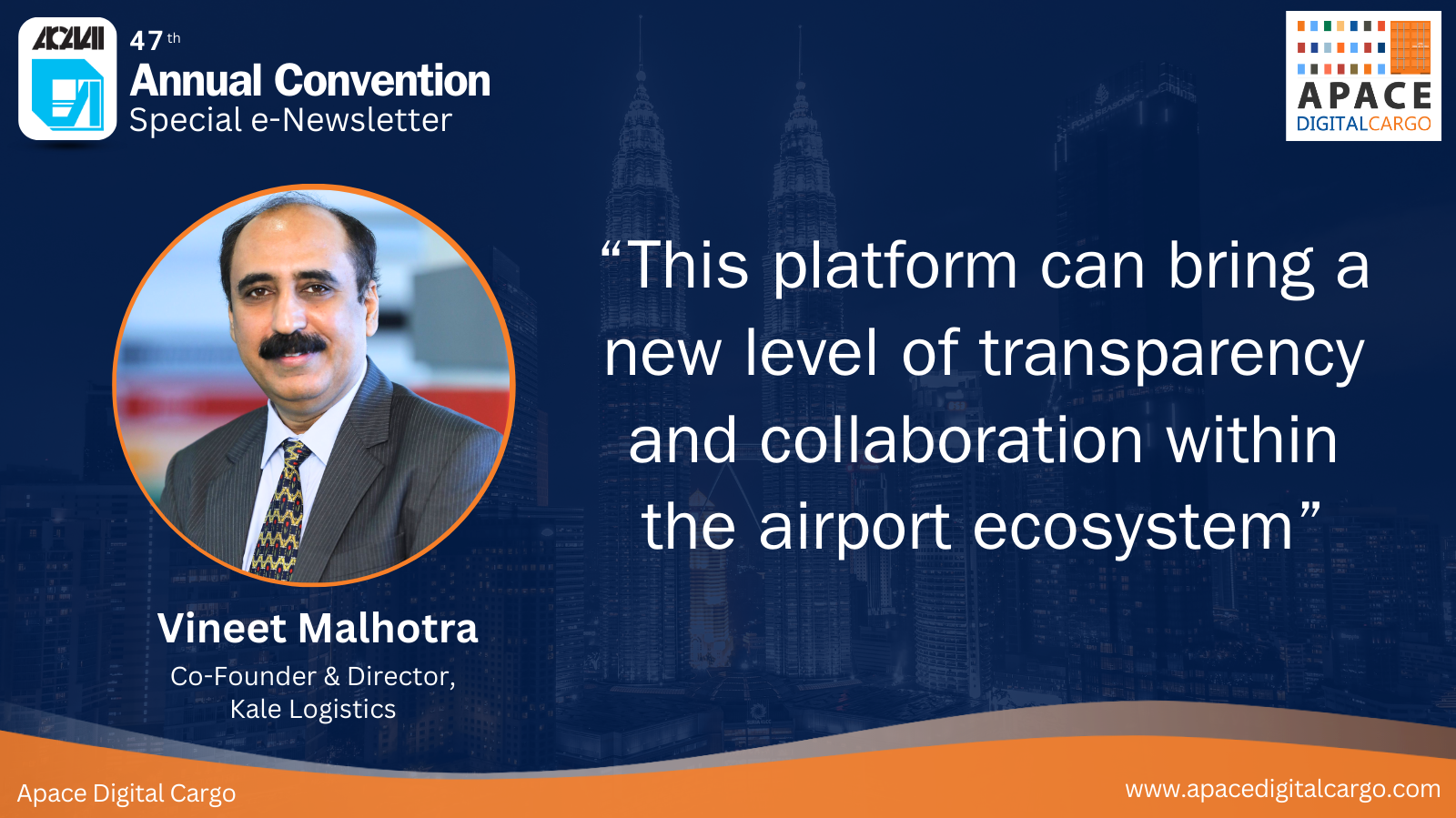
“This platform can bring a new level of transparency and collaboration within the airport ecosystem”
Artificial Intelligence is at the nascent stage but it is the smart technology which has been making waves across industries and air cargo is not left behind. In this interesting interview with Apace Digital Cargo, Vineet Malhotra, Co-Founder & Director, Kale Logistics shares the potential of AI and how this can increase the performance of operations in the air cargo industry.
How can AI enhance air cargo performance?
As cargo volumes continue to rise, sometimes reaching up to million tonnes per year for logistics specialists, there is a critical need for fast and efficient processes and accurate real-time data. The industry is estimated to be losing vast sums of money due to under-reported volumes and mis-declarations of air cargo caused by the human error associated with manual processes.
Getting the data wrong results in incorrect storage charges, reduces loading efficiency and ultimately impacts profitability. To address these inefficiencies, air freight businesses need to blend their team’s expertise with real-time, data-driven intelligence. This can be derived by Artificial Intelligence (AI). Artificial Intelligence is a smart technology that has been making waves across industries.
For air cargo, the major benefit of having an AI powered system is that it can offer predictive analytics and enable informed decision-making for businesses. Especially, understanding critical events like capacity and demand rise/slump is essential in the air cargo industry.
These are some high-level examples of how AI can exponentially increase the performance of operations in the air cargo industry. As we dig deeper there are more applications of AI that are revolutionary and transformative.
How can AI ensure safety, security and transparency in the system?
Stakeholders often complain dub an airport environment to be a blackhole wherein visibility of cargo movement is not known to the landside service providers. Due to this lack of transparency and traceability in the operations, there has been a rise in cargo theft within the air cargo complex. During the peak pandemic time, the vulnerability of cargo theft was much higher.
In certain cases, we see cargo safety as a major concern. And theft of cargo has skyrocketed these days and that is detrimental to industry’s growth prospects.
AI as a model offers route optimization, predict uncertainties, and with real-time data business decisions can be made effective. Most importantly, with automated processes, ambiguities in data entry comes down followed by nearly 100 per cent accuracy.
What’s the future of AI in air cargo? Can this reduce errors and increase efficiency?
There is no doubt artificial intelligence is already transforming business functions and disrupting the traditional ways of business. Nevertheless, a 360-degree process mapping and bringing in all operations involved in a cargo complex is essential. Only then reducing errors and increasing operational efficiency on a macro level will be possible. That brings us to Cargo Community Systems that are holistic in nature and connects every single stakeholder in the airport in a single frame.
This platform can bring a new level of transparency and collaboration within the airport ecosystem. Why we say community platforms in context to AI is because these platforms are enriched with AI based applications. For example, truck slot management is an AI based application that studies peak hours, cargo loading and unloading patterns, truck movement etc. Hence, this is going to be the future of AI in air cargo.





